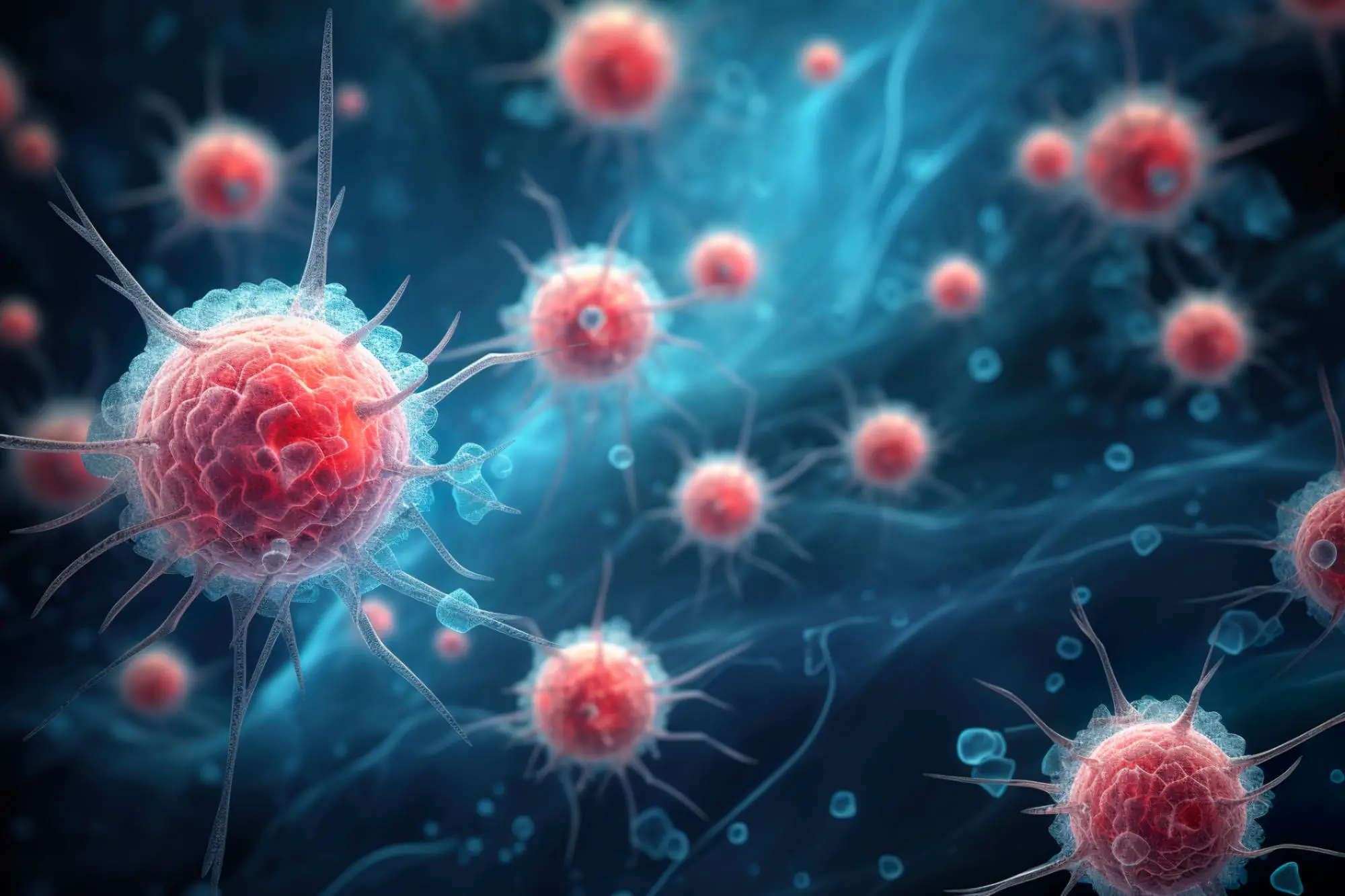by
Researchers at MD Anderson Cancer Center have uncovered key dynamics in the tumor microenvironment of gastric adenocarcinoma and identified SDC2 as a promising new therapeutic target.
MD Anderson’s research provides a deeper understanding of gastric cancer progression and reveals potential therapeutic targets.
A recent study by scientists at the University of Texas MD Anderson Cancer Center has provided new insights into how the tumor microenvironment changes during the development of gastric cancer.Highlights of research published in cancer cellassociations between multicellular communities and patient outcomes, and promising new therapeutic targets.
Gastric adenocarcinoma ranks among the deadliest cancers worldwide, largely due to its natural resistance to treatment. However, the cellular and molecular processes that drive the transition from early precancerous stages to tumorigenesis and metastasis remain largely unknown. This study reveals how different immune and stromal cell subsets change throughout the progression of gastric cancer.

Linghua Wang, M.D. Credit: MD Anderson Cancer Center
The study was conducted by Linghua Wang, M.D., Ph.D., Associate Professor of Genomic Medicine, in collaboration with Jaffer Ajani, M.D., Ph.D., Professor of Gastrointestinal Oncology, and Ruiping Wang, Ph.D., postdoctoral fellow at Wang Lab. .
“Gastric adenocarcinoma exhibits a high degree of heterogeneity in terms of both phenotype and molecular characteristics, but research on gastric adenocarcinoma lags behind other types of cancer,” said Wang. “Most studies have focused on tumor cells and largely overlooked the immune and stromal cells within the tumor microenvironment, which are highly dynamic and play an important role in cancer progression. , which is representative of the largest single cell. RNA This has led to the sequencing of previous gastric adenocarcinoma cohorts and has provided important new insights into how these cell populations influence disease progression. ”
The research team obtained single-cell RNA-sequencing (scRNA-seq) data from 68 gastric adenocarcinoma samples, including various stages, including premalignant lesions, localized tumors, and distant metastases, as well as normal tissue and peripheral blood samples. By doing so, we clarified various immune and peripheral blood characteristics. We explored stromal cell populations within the tumor microenvironment and discovered available targets for modulating the tumor microenvironment.
New approach enables researchers to dissect the complex tumor microenvironment
Various immune and stromal cell subsets formed multicellular communities, or aggregate cellular states, present in the tumor microenvironment of individual tumor samples. The research team called these groups “ecotypes” and identified six unique ecotypes, each governed by specific immune and stromal cell states.
“Although many published single-cell studies have focused on characterizing the heterogeneity of individual cellular compartments, our study integrates different components of the tumor microenvironment to form ecotypes. We used new approaches and concepts to define and explore its clinical significance,” said Wang. “This approach can be easily applied to research in other types of cancer.”
A notable finding is that two ecotypes (EC3 and EC6) correlate with distinct histological, genomic, and clinical features of primary gastric adenocarcinoma. Tumors classified as EC3 were mainly composed of immune cell subsets, whereas EC6 tumors contained mainly stromal cell subsets. Patients with EC6 tumors had more aggressive disease and a significantly shorter survival time than those with EC3 tumors.
The survey results show that SDC2 As a potential therapeutic target for stromal cells
Although the stromal component within the tumor microenvironment plays an important role in tumor initiation, progression and metastasis, cancer therapeutic strategies have so far focused on regulating the stromal component, especially in patients with gastric adenocarcinoma. Very rarely.
This study revealed that SDC2 As a potential target worthy of further investigation.researchers have discovered SDC2 Overexpression in stromal cells, particularly cancer-associated fibroblasts, correlated with advanced disease and stage and was strongly associated with unfavorable survival outcomes. In addition, SDC2 Expression was consistently elevated in stromal cells of various other cancer types, including pancreatic, colorectal, bladder, breast, and renal clear cell carcinomas.
“There are unmet needs at every stage of the clinical journey for patients with gastric adenocarcinoma,” said Ajani. “Our team strives to use novel interrogations to discover new therapeutic targets to improve outcomes for these patients. SDC2 Studies in cancer-associated fibroblasts represent a potentially exciting way to justify further research. ”
Reference: “Immune and stromal cell status and ecotype evolution during gastric adenocarcinoma progression” Ruiping Wang, Shumei Song, Jiangjiang Qin, Ketsuhiro Yoshimura, Fuduan Peng, Yanshuo Chu, Yuan Li, Yibo Fan, Jiankang Jin, Minghao Dang, Enyu Dai, Guangsheng Pei, Guangchun Han, Dapeng Hao, Yating Li, Deyali Chatterjee, Kazuto Harada, Melissa Pool Pizzi, Ailing W. Scott, Ghia Tatlonghari, Linghua Wang, 6 July 2023, cancer cell.
DOI: 10.1016/j.ccell.2023.06.005
The research team shared their results online with the wider research community. Single cell research portal Developed by Wang Lab.
This work was supported by MD Anderson, National Cancer Institute (R01CA266280, CA016672), University Cancer Foundation, Andrew Sabin Family Foundation, Department of Defense (CA160445), Stupid Strong Charitable Foundation, Schecter Private Foundation, and The River. Ta. Creek Foundation, V Foundation Cancer Research Foundation, John Armstrong Foundation, Golfers Against Cancer, Inc., Zeus Immunology Research Fund, Kevin Fund, Meyer Fund, Dio Fund, Milrod Fund, Caporella Gastric Cancer Fund Research, and Dallas , Sultan, Parke, Smith, Frazier, Oakes, Van Stekelenberg, Plangery, McNeil, Moran, Hyland, Weed, Cantu families.
